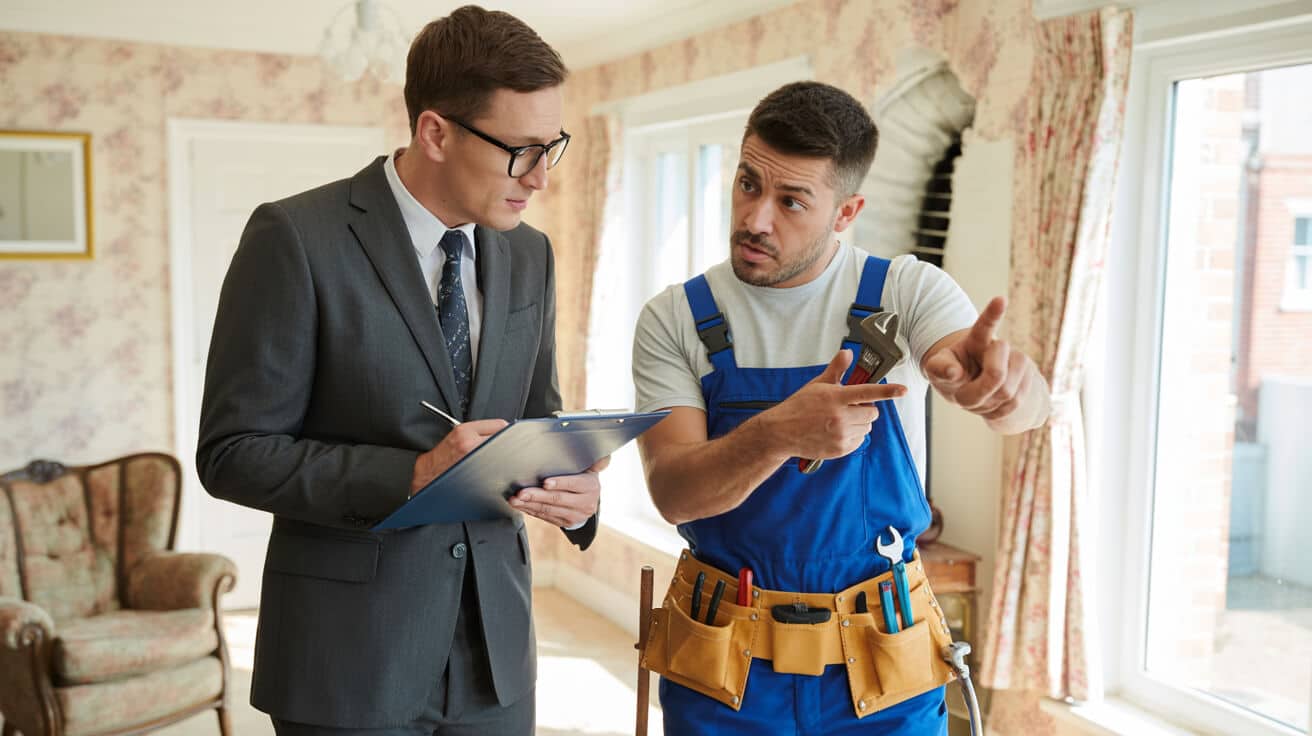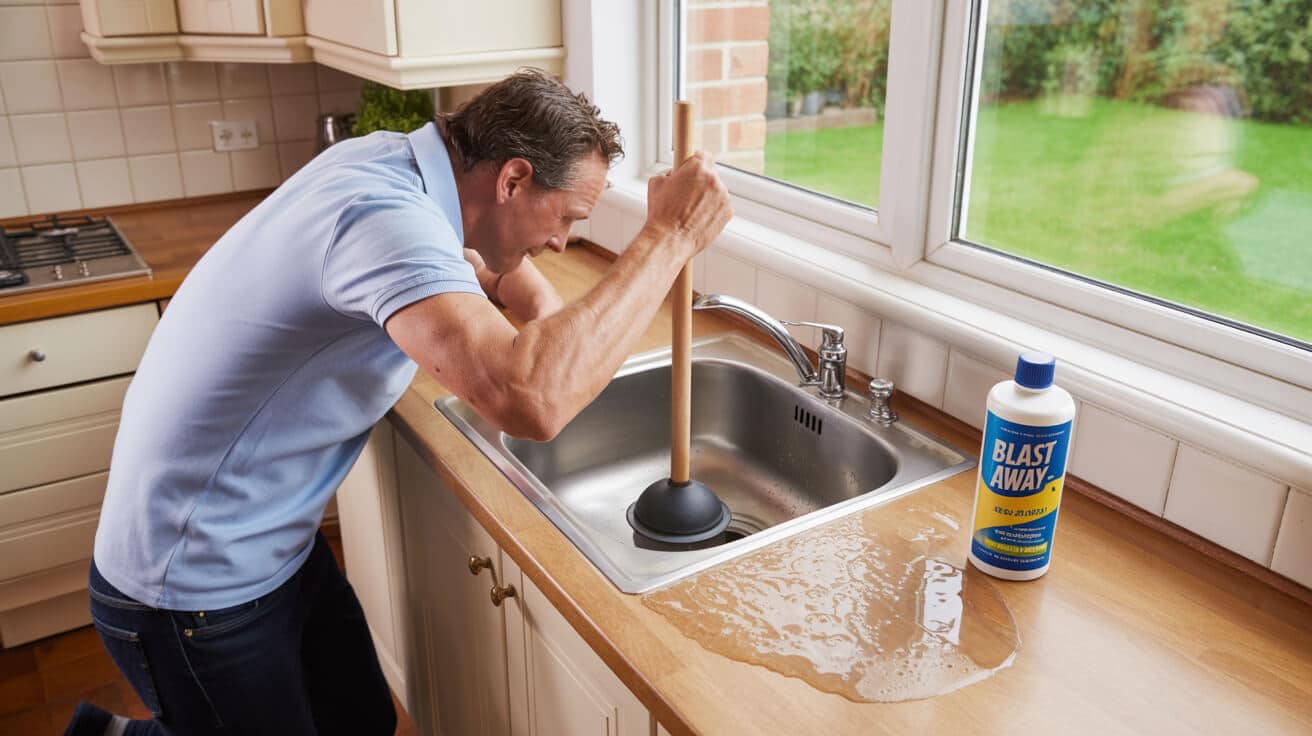 Avoiding Disputes Over Heating Responsibilities Between Landlords and Tenants
Avoiding Disputes Over Heating Responsibilities Between Landlords and Tenants

Can Landlords and Tenants Really Avoid Heating Disputes—or Is Conflict Inevitable?
If you manage or occupy property in the UK, chances are you’ve run into the winter standoff—heating suddenly fails, and neither side is sure who should act, how fast, or how to prove what happened next. Heating disputes aren’t just about the equipment; they boil down to confusion over responsibility, urgency, and, often, a paper trail that never truly gets started. What’s at stake? More than chilly toes. One unresolved phone call can turn into compensation claims, soured relationships, or legal letters—outcomes no manager, landlord, or tenant wants on their watch.
True peace of mind comes from knowing the rules and running reliable systems, not from hoping for quiet winters.
Yet, here’s the reality: UK law (and good service practice) are built to end most arguments before they begin. Disputes over boilers, radiators, or whole-system failures hardly ever come from the law itself—they nearly always come from communication gaps, mistaken assumptions, or record mishaps. The winning strategy for both sides is to treat heating as a joint priority: proactive checks from landlords, ready reporting from tenants, and a rhythm of documenting everything as you go. When you combine the right legal protocols with service basics and clear records, disputes lose their grip and trust takes over, even when the system hiccups.
What Are Landlords Legally Required to Do About Heating—and Why Can’t Tenants Waive These Rights?

Landlords play by some of the world’s strictest rules on heating, hot water, and tenant safety. The framework is built on acts like the Landlord and Tenant Act 1985, the Housing Health and Safety Rating System (HHSRS), and the Homes (fitness for human habitation) Act 2018. The message is simple: heating provision is the landlord’s responsibility—always.
What does the law actually require?
- No shifting the burden: No clause in any tenancy (even if both sides sign) can put heating system maintenance on the tenant. If it tries, the law overrides it—full stop.
- Year-round standards: Landlords must provide effective heating and hot water twelve months a year, not just in the “heating season.”
- Safe minimums: The property must be able to maintain at least 18°C in bedrooms and 21°C in living rooms (HHSRS, section 5). Any drop below that—especially if source is a failed system—means a duty to fix, regardless of outdoor temperature or fuel prices.
The Homes (Fitness for Human Habitation) Act 2018 gives tenants a direct right to demand repairs if heating fails or is inadequate. *(UK Parliament)*
Ignoring these standards isn’t just risky—it’s expensive. Councils can fine landlords, order repairs, or let tenants claim compensation or carry out repairs themselves (deducting costs from rent, but only in controlled conditions). And retaliation isn’t allowed: report a heating fault in writing and the landlord cannot legally evict the tenant just for raising the issue (Deregulation Act 2015).
Key takeaways? The rules are fixed; disputes nearly always come from missed steps in reporting, documenting, or misunderstandings—not legal ambiguity.
What Maintenance Protocols Prevent Most Heating Disputes Before They Start?

Ask successful portfolio landlords and property managers how they avoid disputes, and you’ll hear the same answer every time: maintenance is rhythm, not reaction. The best avoid emergencies by planning ahead, keeping records, and never missing an annual check.
Maintenance ‘Never-Miss’ List for Landlords and Agents
- Annual servicing: Book an annual boiler and system check with a Gas Safe engineer (boilers) and G3-certified pro (unvented cylinders). Certificates stored, not stuffed in a drawer.
- Record every repair: Every service, part swap, or emergency visit should be logged—digital logs with dates, photos, and invoice numbers mean nobody has to “prove” an issue years later.
- Plan for breakdowns: Set a real goal: engineer arranged within 24–48 hours for heating loss, especially October–March or for tenants with health risks. Always have a standby option (e.g., portable heaters); logging these steps is just as vital as solving the issue.
- Only qualified trades: Accept no shortcuts—unqualified repairs risk tenant safety, invalidate insurance, and create headaches if the same issue returns.
- Transparency rules: Send copies of service records to tenants, not just managing agents. This keeps everyone in the loop and dissolves suspicion.
Warranty and insurance claims can be refused if routine servicing isn’t documented—recordkeeping protects both landlords’ assets and tenants’ rights. *(Simply Business)*
If a fix hits delays, tell the tenant—then document what’s happening and why. Most feuds start with radio silence, not broken boilers.
What Rights and Protections Can Tenants Rely On When Heating Breaks Down?

Tenants in the UK have world-class heating protections—on paper and in practice. But these rights mean little if tenants don’t know how or when to use them.
Daily Defences: Tenant Protections That Actually Work
- Clear minimums guaranteed: If your bedroom is consistently below 18°C or your living room below 21°C, it’s time for formal complaint—no “wait-and-see” needed.
- Put it in writing: Written requests (by email, letter, or app) aren’t just polite—they’re legal leverage. Photos help. Councils and ombudsmen trust timelines and attachments, not vague call logs.
- No risk of revenge eviction: Report a heating issue in writing, and the landlord is blocked from serving a Section 21 (“no-fault”) eviction for at least six months (Deregulation Act 2015).
- 48-hour window for emergencies: No heat at all, especially in winter? If nothing happens within 48 hours, keep the paper trail moving and contact Environmental Health with your evidence.
Written evidence of heating complaints decides disputes—tenants protected by law are those who keep the best records. *(Shelter)*
Tenants who report issues promptly, in writing, and escalate only when necessary, get results fastest—and they keep their legal footing solid if a dispute escalates.
Why Meticulous Communication Prevents Conflict—Even When Goodwill Runs Low

Disputes don’t start with a boiler breakdown; they start when one side feels left in the dark. Crystal-clear comms—recorded, not just remembered—are what separates smooth fixes from courtroom files.
Communication Habits That Keep the Peace
- Acknowledge every issue promptly: Even a simple “we’ve received your report; here’s what happens next” increases trust and slows down panic.
- Audit trails matter: Write down every fix, part fit, or workaround (portable heater drop-offs, for example), and log them for both landlord/agent and tenant.
- Archive for at least a year: Print or screenshot your messages, create an email folder, save job sheets, and insist on dated photos. This beats any memory or “they said, we said” scenario.
If repairs run long, the key is to log every attempt and offer heat alternatives—most complaints trace back to missed messages, not missed appointments. *(NRLA)*
The uncomfortable truth is that disputes aren’t about technology—they’re about documentation and trust. When in doubt, write it down, send a copy, and store it safe.
What Steps Should Be Taken—And When—If Heating Disputes Arise?

Even the best-run properties hit bumps: part shortages, unexpected faults, weather delays, or rare miscommunications. But when friction builds, knowing the correct escalation steps protects both sides from losing money or making hasty mistakes.
Action Steps: Timeline for Escalation
- Emergency loss (full heating out in winter): Arrange an engineer within 24–48 hours; if not possible, provide written notice with a standby heater and estimated timeline, logged for both parties.
- Lower-priority jobs (slow warming, intermittent faults): Aim for resolution or scheduled works within 14 days, with progress updates along the way.
- Formal escalation:
- Tenant sends a “second request” in writing, referencing prior contacts and including evidence (emails, repair tickets, photos).
- If ignored, tenant forwards all documentation to the local council Environmental Health.
- Landlords in these cases may face improvement orders—and during this window, cannot serve no-fault eviction notices.
Councils have the power to demand urgent repairs and freeze evictions while valid complaints are in play. *(Shelter)*
Defensive moves, like withholding rent, usually backfire—damaging your legal standing and goodwill. The best move for both parties? Stick to official routes and keep every document ready.
Why Detailed Tenancy Agreements and Service Records Slash the Risk of Disputes

Nobody remembers every repair. That’s why airtight contracts, service logs, and checklists are systems, not paperwork: they protect everyone from unclear expectations, bad assumptions, or management changes.
Documents That Make the Difference
- Clear duties: Spell out which party handles what, annual servicing dates, and who’s the emergency contact (including after-hours paths).
- Digital records: Every engineer’s visit, photo, and signed job sheet goes into a central digital file shared (at least) between agent/landlord and tenant.
- Access clarity: Agreements must specify how much notice is needed to arrange repairs, who’s allowed on-site, and under what terms.
- Certificates on file: scanned/photographed versions of boiler, unvented (G3), and WRAS approvals, issued to both sides as part of the handover.
- Handover and exit checklists: Confirm heating works, set working temperatures, and get signatures from both sides when keys change hands.
Disputes often explode over vague or missing contract details—proactive logs and specific files are your best insurance. *(Propertymark)*
An hour spent updating your contract or organising service files usually pays off tenfold when the boiler dies at 7pm on a Sunday.
Why Qualified Engineers—And Their Records—End the Blame Game

Heating isn’t just pipes and pressure—it’s the intersection of safety, compliance, and legal exposure. When repairs are handled by regulated professionals and every step is logged, post-fault finger pointing becomes unnecessary.
How Plumbers 4U Stacks the Odds in Your Favour
- Credentials over guesswork: Plumbers 4U fields only WRAS-approved, G3-certified, WaterSafe-registered engineers on heating jobs—fully credentialed and checked for each assignment.
- Documented start-to-finish: Every visit produces before-and-after photos, full part codes, and a digital log accessible to the landlord/agent and tenant, with separate summaries for larger blocks or businesses.
- Built-in compliance: All works follow Part G/H rules and manufacturer benchmarks, keeping both warranties and insurance policies unbroken.
- No information gaps: Everyone gets a copy of the completed service and repair log as soon as the job’s done—reducing “he said, she said” drama.
- Almost-no-dispute record: Fewer than 0.2% of heating service calls handled by Plumbers 4U in the last 12 months have led to a recorded complaint, thanks in part to robust paperwork and regular progress updates.
A heating system is only as reliable as its last service log—when you trust, check, and document, disputes barely get started.
Patchwork repairs, missing documents, or uncertified trades only guarantee trouble. Get it fixed and get it recorded—always.
Book Certified Heating Repairs with Plumbers 4U Today
The only thing more valuable than a working boiler is knowing you’ll never have to argue about its service history. With Plumbers 4U, that assurance is built in: fast, regulation-honed repair from engineers who document every detail—protecting both warmth and peace of mind, whether you manage dozens of properties or simply want to keep your flat warm in January.
- All the right certificates: WRAS, WaterSafe, NVQ3, and G3-compliant engineers on every heating job.
- Rapid-response promise: 24-hour emergency coverage, including overnights and weekends.
- No hidden costs: Upfront, line-item quotes on every repair—no surprises or add-ons after the fact.
- Universal documentation: Every fix gets a digital job sheet, photos, and *all* compliance materials on handover.
- Services for every scenario: From annual landlord certificates to system upgrades and compliance surveys, one call handles it.
- Person-to-person support: Clear, jargon-free updates from first call to last fix—no get-out clauses, just results.
The real difference is measured in reliability and records, not promises.
If you want less hassle, warmer properties, and evidence for every job, book your repair or compliance check with Plumbers 4U today. Peace of mind is a phone call away—and future disputes become far less likely when you start with the right team.
Frequently Asked Questions
What contractual terms or legal loopholes can actually let landlords refuse heating repairs?
No legal loophole or tenancy clause allows a landlord in the UK to avoid repairing or maintaining heating, regardless of what’s written in your agreement. Statutory law always outranks contract wording: Section 11 of the Landlord and Tenant Act 1985, the Homes (Fitness for Human Habitation) Act 2018, and Housing Health and Safety Rating System (HHSRS) enforcement guarantee heating repairs stay the landlord’s legal duty. Even if a tenant signs a waiver, those clauses are void and unenforceable. All boilers, central heating systems, thermostats, hot water tanks, and pipework fall under the landlord’s remit—so the cost, arrangements, and responsibility for repairs can’t be shifted to the renter unless there’s clear evidence of tenant damage or negligence.
Which heating components and scenarios are the landlord’s legal responsibility?
- Gas, oil or electric boilers and hot water cylinders
- Radiators, pipework, TRVs, expansion vessels, and controls
- Emergency breakdowns or gradual loss of function
- All annual safety certification and engineer visits (DIY or “quick fix” is never compliant)
If you’re ever told, “That’s not covered by your tenancy,” remember: the law protects you before any side letter, clause, or agent’s promise. Landlords and property managers who keep detailed repair logs and share timing updates rarely face legal battles—courts and councils always look for documentation, not side arguments.
Even an agreement that tries to shift boiler repairs to the tenant is overridden by UK statute. Landlords simply can’t contract out of this.
Why do most disputes about heating repairs come from missed messages, not neglected fixes?
The most frequent cause of conflict isn’t a stubborn landlord or faulty heating; it’s confusion over who reported what, when, and how. Problems typically spiral when repair requests, updates, or engineer reports get lost in unclear channels—especially as winter demand peaks and timelines compress.
Where do repair communication breakdowns occur most?
- Verbal-only reporting (phone, in-person) creates plausible deniability for both sides.
- Lack of timestamped emails, photos, or signed digital logs to back up repair requests and responses.
- Delayed, incomplete, or ambiguous replies—from landlords, agents, or engineers—leave tenants in the dark.
- Certificates, invoices, and job reports not shared openly with all parties.
- Management handovers mid-tenancy can scatter records, making it harder to prove compliance or timing.
Implementing digital records, photo evidence, and prompt, factual updates (especially in busy periods) removes confusion and accelerates fixes. If language is a barrier, either side should request translated summaries; clear communication up front is the best prevention.
What actually defuses conflict is a paper trail: one log, one record, one shared update.
How can a transparent contract and shared repair log shield both landlord and tenant from conflict?
Tenancy agreements that state precise duties for heating, supported by an always-updated repair log, form a protective barrier for both sides. These tools not only clarify who should act, but also provide council-ready records if disagreements escalate.
Which contract details and real-life practices are most effective?
- Contracts should spell out: the landlord is responsible for repairs and maintenance of all heating, hot water, and associated controls for the tenancy’s duration.
- Tenants agree to prompt, written notice of faults and reasonable access for certified engineers.
- Both parties maintain and share all compliance paperwork: service records, engineer reports, and certifications, ideally stored in a cloud folder.
- Triggers for alternative heat (such as electric heaters or hotel stays) must be defined if heating isn’t restored within 24–48 hours in winter.
- Agreed communication protocols: email, app, or text—with defined response times and acknowledgment.
Even if management switches or ownership changes mid-tenancy, the shared log prevents game-playing. Every step, from report to repair to confirmation, leaves a digital footprint that proves due diligence—effectively closing off most avenues for a drawn-out dispute.
What counts as “reasonable time” for fixing heating, and how should everyone document delays?
UK standards expect urgent heating issues (no heat in winter) to be tackled in 24–48 hours. Homes with vulnerable residents—children, elderly, health needs—should see faster responses. Less urgent issues (for example, one cold radiator rather than a full breakdown) typically warrant repair within 14 days. If repairs drag due to part shortages or engineer availability, landlords and agents are still obliged to document the reasons clearly and provide interim solutions like electric heaters.
Stepwise guide to documenting and managing repair delays
- Tenants should always submit repair requests in writing, with a date, details, and photos or video where possible.
- Landlords must reply (in writing) within 24 hours, and work to dispatch an engineer within 48 (or sooner in emergencies).
- All delays—part shortages, weather, engineer illness—must be explained in writing and justified with alternate provision.
- If there’s no progress, tenants can escalate to Environmental Health after 48 hours during the heating season, submitting their log of all communications.
- Councils expect each side to maintain a clear, concise audit trail; lack of records slows resolution and raises legal risk for the landlord.
When every update and promise is documented, delays don’t become disputes—they become proof of intent and effort.
If either party fails to act, which escalation path actually gets the heating fixed?
When someone misses a repair timeline or stops communicating, a structured escalation process is your fastest way to a warm, compliant property. Both landlords and tenants lower their exposure when they document each step and know the order of action.
What is the recommended escalation workflow for UK rented property?
- Tenant issues a written, time-stamped report (with optional images).
- Landlord/agent responds within 24 hours and schedules a qualified engineer within 48 hours.
- If no confirmation or repair after 48 hours in peak season, tenant sends a follow-up with previous correspondence attached.
- If still unresolved, escalate by contacting the local authority’s Environmental Health department, providing a full communication trail.
- The council can mandate repairs, serve legal notices, and, if necessary, impose fines.
- Prolonged issues may justify advice from Citizens Advice, Shelter, or a solicitor—but never stop rent payment without legal input.
- Throughout, keep the shared log updated at every stage (names, dates, actions, replies).
Sticking to this roadmap makes it easier for councils or courts to assign responsibility and push for a fix, significantly reducing drawn-out cold spells or finger-pointing.
The path to resolution is paved with documentation—step by step, it secures comfort and legal safety.
How do certified engineer repairs and compliance logs prevent future heating disputes?
Calling in a Gas Safe, G3, or WRAS registered engineer—and insisting on complete documentation after each repair—transforms heating fixes into evidence-backed events. These protocols build a foundation you can actually show to councils, courts, insurers, and future tenants.
Why do certified repairs and full logs matter for compliance and peace of mind?
- Every repair generates a digital or stamped certificate, referencing part numbers and engineer credentials.
- Before-and-after photos for every service serve as undeniable proof of completed work and quality.
- Service logs (ideally kept online as well as physically) fortify your position if new staff, managers, or owners get involved.
- manufacturer warranties almost always require repairs and parts to be certified; cutting corners costs more in the long run.
- In the past year, Plumbers 4U customers needed external dispute intervention on less than 1 in every 400 repairs, thanks to robust documentation and strictly certified engineers.
| Sample Heating Compliance Log | |||
|---|---|---|---|
| Date | Issue | Engineer | Status/Certs |
| ———– | ———————— | ———- | —————- |
| 11/10/24 | Boiler pressure loss | Plumb4U | Gas Safe Cert |
| 11/11/24 | Radiator leak repaired | Plumb4U | Photo/Emailed |
| 19/11/24 | Annual check | Plumb4U | All certs OK |
For landlords, managers, and letting agents, having these logs means insurance, compliance, and legal questions become routine paperwork, not high-stakes friction or blame-swapping. If you’d rather not manage every log or certificate yourself, Plumbers 4U can deliver an end-to-end compliance pipeline, handling all documentation, updates, and annual checks.
Your reputation—and your comfort—get built one certified repair and one shared log at a time.
Arrange a heating service or compliance check with Plumbers 4U and close the gap between good intentions and proven protection.



